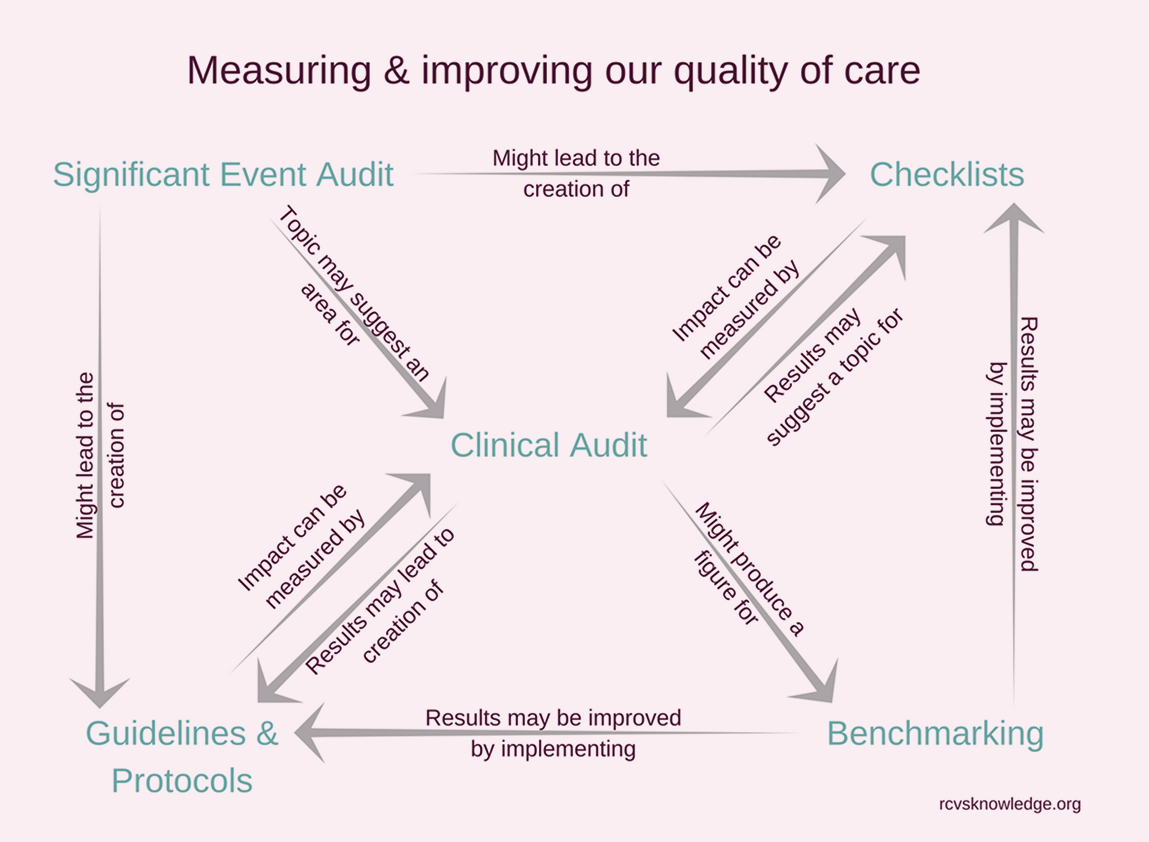3.2 Assess as part of clinical governance
A principal reason for assessing implementation of EBVM is as part of a clinical governance programme.
Clinical governance provides a comprehensive framework, including a number of different quality improvement systems (such as clinical audit, supporting and applying evidence-based practice, implementing clinical standards and guidelines, and workforce development) and promotes an integrated approach towards continuous quality improvement.
Figure 5: Measuring and improving our quality of care

For example, as can be seen in Figure 1 above, significant event audits might lead to the creation of checklists, guidelines and protocols, and the topic of a significant event audit may suggest an area for a clinical audit. The results of a clinical audit may lead to the creation of guidelines and protocols, and checklists, and the impact of these can also be measured by a clinical audit. A clinical audit might produce a figure for use in benchmarking. Benchmarking results might be improved by implementing guidelines and protocols, and checklists.
The RCVS Code of Professional Conduct for Veterinary Surgeons defines clinical governance as:
a continuing process of reflection, analysis and improvement in professional practice for the benefit of the animal patient and the client owner.
In the UK, the RCVS Practice Standards Scheme states that:
The practice must have a system in place for monitoring and discussing clinical cases, analysing and continually improving professional practice as a result.
and that:
Veterinary surgeons must ensure that clinical governance forms part of their professional activities.
Veterinary Hospitals in the UK must also comply with the following:
Regular morbidity and mortality meetings must be held to discuss the outcome of clinical cases. There are records of meetings and changes in procedures as a consequence.
and:
Clinical procedures carried out in the practice are audited and any changes implemented as a result.
But it’s not just abiding by professional standards that drives us to assess what we do. Development of an ethos of reflection on, and assessment of, our practices is a vital part of developing our confidence and competence as a veterinary professional.
